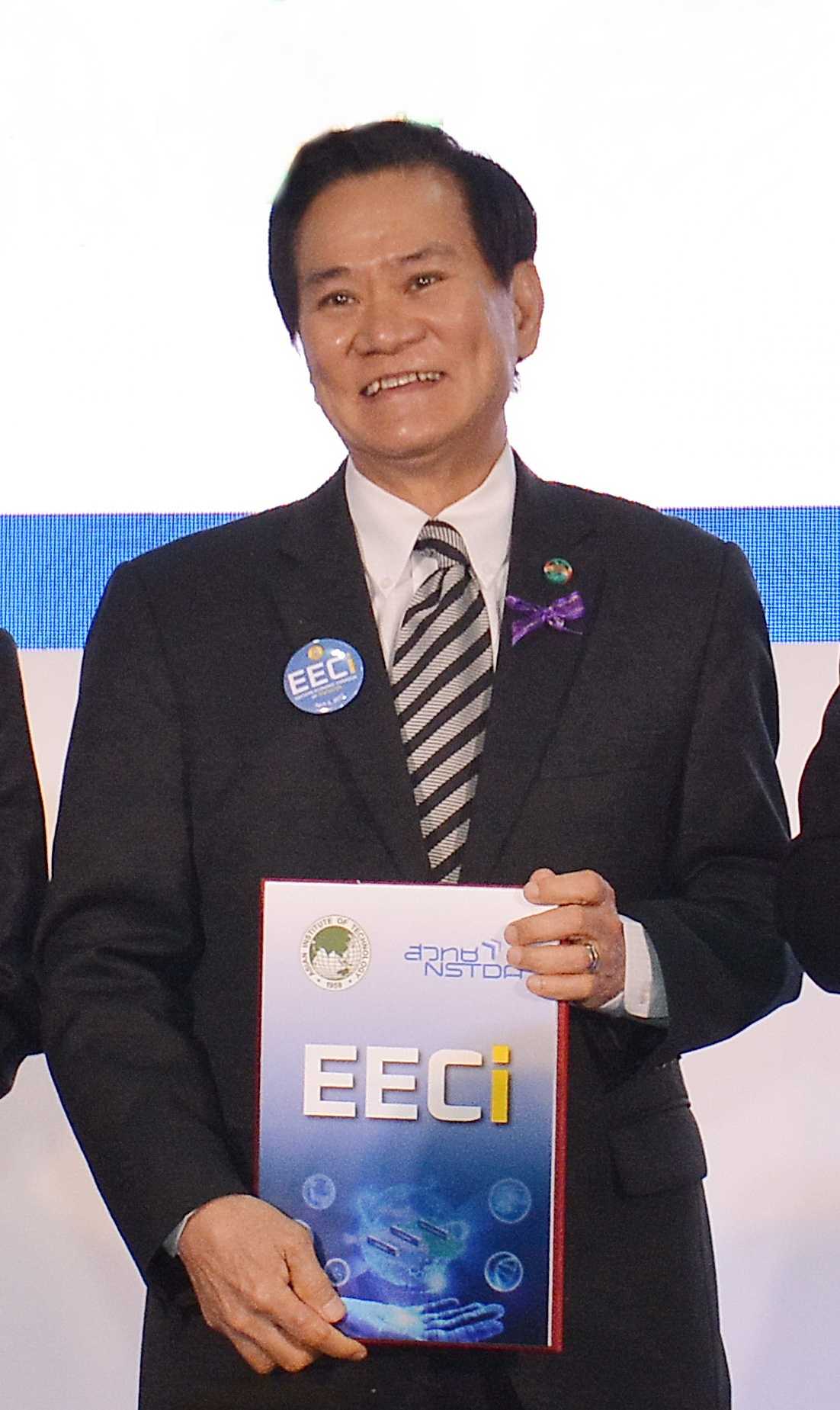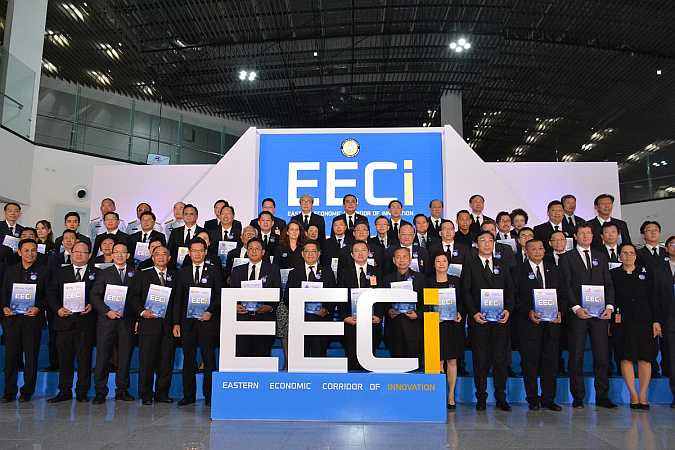
The Asian Institute of Technology (AIT) is among the founding signatories of the Eastern Economic Corridor of Innovation (EECi), a project initiated under the Eastern Economic Development Plan that focuses on creating a science hub in the ASEAN region. Fifty organizations from academia, national and international research organizations, governmental bodies and the private sector are signatories to the EECi.
The agreement signing ceremony took on 5 April 2017 at the U-Tapao
International Airport in Rayong Province in the presence of General
Prayuth Chan-o-cha, the Prime Minister of Thailand. AIT was led by
President Prof. Worsak Kanok-Nukulchai.
EECi will be spread across two campuses with the 1200-acre Wang Chan
Valley Campus comprising of ARIPOLIS (for automation, robotics,
and intelligent systems) and BIOPOLIS (for life science and
biotechnology). Another 48-acre campus called Space Krenovation Park
(SKP) will be located in Sriracha, Chonburi Province, and it will
specialize in the aeronautic and aerospace industry.
Thailand’s Minister of Science and Technology, Dr. Atchaka Sibunruang
said that the National Science and Technology Development Agency (
NSTDA) has been tasked by the Ministry to establish EECi by forging a
partnership with various organizations. This will help Thailand
leverage science, technology and innovation, as well as boost the
country’s competitiveness and people’s quality of life. "Innovation is
key to Thailand in order to escape the medium income trap,” said Dr.
Narong Sirilertworakul, NSTDA Director added.
Academic partners of the project include Asian Institute of
Technology, Chiang Mai University, Chulalongkorn University,
Kamnoetvidya Science Academy. Kasetsart University, Khon
Kaen University, King Mongkut's University of Technology
Thonburi, Mahidol University, Naresuan University,
Prince of Songkla University, Suranaree University of
Technology, Thai-German Institute, Thammasat University,
Vidyasirimedhi Institute, and Walailak University.
International research institutes include Chinese Academy of Sciences
(CAS, Korea Advanced Institute of Science & Technology (KAIST,
Japan-ASEAN Science, Technology, and Innovation Platform (JASTIP),
Kyoto University, Tokyo Tech, and Fraunhofer-Gesellschaft Institute.
Thai research institutes that are a part of EECi are Department of
Industrial Promotion, Department of Science Service, Geo-Informatics
and Space Technology Development Agency (Public Organization),
Industrial Estate Authority of Thailand, National Innovation Agency
(Public Organization), National Institute of Metrology,
National Science Technology and Innovation Policy Office, Thailand
Institute of Scientific and Technological Research, The Center of
Excellence for Life Science (Public Organization), and Thailand
Automotive Institute.
Aapico Hitech Public Co. Ltd., Asia Star Trade Co. Ltd., Baxter Health
Care (Thailand) Co. Ltd., Betagro Public Co. Ltd., Charoen Pokphand
Foods Public Co. Ltd., Corbion Purac (Thailand) Co. Ltd.,D5 Future
Industry Development Cluster (New S-Curve), Kaset Thai International
Sugar Corporation Public Co. Ltd., Global Green Chemical Public Co.
Ltd., Global Power Synergy Public Co. Ltd., Gravitech Thai (Thailand)
Co. Ltd., Pharmaceutical Research and Manufacturers Association, PTT
Global Chemical Public Co. Ltd., PTT Public Co. Ltd., R. V. Connext Co.
Ltd., SAIC Motor-CP Co. Ltd., Siam Cement Group Public Co. Ltd.,
Siam Bioscience Co. Ltd., Supreme Hitera Co. Ltd., and Thai Wah
Public Co. Ltd are the 20 private sector partners in the project.

